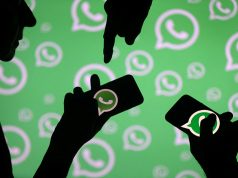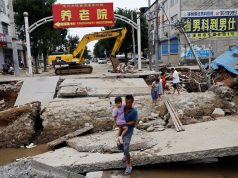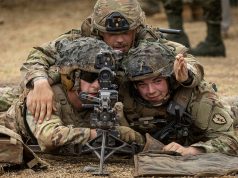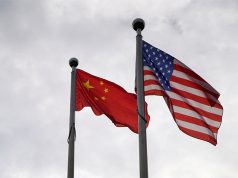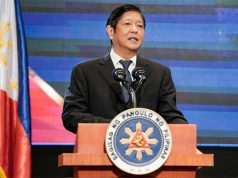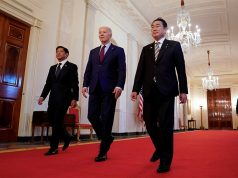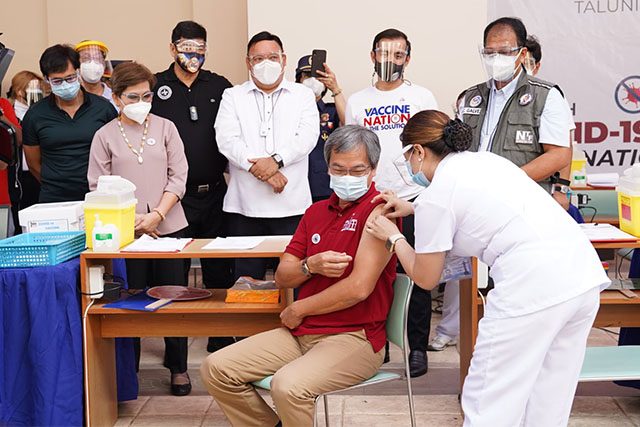
A senior Palace official remarked that healthcare workers should be the first ones to take Sinovac‘s coronavirus vaccine (CoronaVac) even if the Food and Drug Administration did not initially recommended it to medical frontliners.
READ: Philippines approves Sinovac vaccine but not for all health workers
Presidential spokesperson Harry Roque attended the much-anticipated kick-off of the country’s first inoculation drive against COVID-19 at the University of the Philippines-Philippine General Hospital, one of the COVID-designated hospitals, on Monday morning.
The rollout began a day after 600,000 doses of CoronaVac, arrived in the country. These are donations from China, also the vaccine’s origin.
UP-PGH Director Gerard Legaspi was the first one in the country to be legally inoculated with the Sinovac vaccine.
As of 1:10 p.m., aside from Legaspi these are the officials who took the Sinovac jab:
- Testing czar Vince Dizon
- FDA chief Eric Domingo
- Metro Manila Development Authority chief Benhur Abalos
- Vaccine czar Carlito Galvez
- Department of Health’s Technical Advisory Group member Edsel Maurice Salvana
Roque, on the other hand, was next in line and also underwent pre-screening for the Sinovac vaccination.
Before the vaccination ceremony, Roque lauded the healthcare workers and acknowledged their right to be the first ones to receive the jab under the government’s vaccination priority list.
“Sa lahat ng medical frontliners, kayo ang tunay na bayani sa panahon ng COVID-19 [pandemic]. At dahil kayo ang tunay na bayani, tama lang po na kayo ang mauuna sa COVID-19 [vaccine]. Ito’y pagpapakita ng aming pasasalamat at utang na loob. Mabuhay ang lahat ng medical frontliners!” Roque was quoted as saying.
Some Filipinos did not approve the Palace official’s remarks and found it a move to “gaslight” healthcare workers who refused to take the China-made vaccine.
“Harry Roque just called the health workers of PGH ‘mga tunay na bayani…At dahil kayo ay mga bayani, tama lang na kayo ang mauna sa Covid-19 vaccine…’ Using heroism to gaslight health care workers into taking a vaccine not recommended to health care workers. That’s just vile,” screenwriter Anjeli Pessumal said.
“Don’t let him get away with this,” she added in the replies thread of her post, quote tweeting Roque’s words.
Some members of the medical community previously shared the same perception after health sociologist Nina Castillo-Carandang, a member of the National Immunization Technical Advisory Group (NITAG), said that healthcare workers who are reluctant to take the Sinovac jab “sends a signal to the public.”
Dr. Castillo-Carandang: If health care workers are reluctant to accept vaccination then that also sends a signal to the general public. We'd like to offer this opportunity for healthcare workers, if they're willing to do so to have themselves vaccinated with Sinovac.
— ABS-CBN News (@ABSCBNNews) February 26, 2021
Others said that they are willing to be inoculated, provided that the company has disclosed clinical trial results of the vaccine, which other pharmaceutical firms have done.
Last Friday, some health workers of UP-PGH, who are members All UP Workers Union-Manila, staged a protest in front of PGH to oppose the inoculation of Sinovac vaccine.
HAPPENING NOW: Healthcare workers stage a protest in front of the Philippine General Hospital calling for a safe, effective and free vaccine. This is amid the announcement from the PGH admin that they will receive Sinovac vaccine instead of Pfizer. pic.twitter.com/p5O5cb3sH7
— Philippine Medical Students' Association (@PMSANational) February 26, 2021
Healthcare workers are at the frontlines of the battle against the COVID-19 pandemic who are regularly exposed to the virus in their day-to-day duties.
Sinovac has not yet submitted its Phase 3 clinical trial data to medical journals for peer review.
Late-stage trials in Indonesia showed that its CoronaVac has an efficacy rate of 65.3% while a study conducted in Turkey showed that it has an efficacy rate of 91.25%. Both were conducted as community trials.
A trial in Brazil, meanwhile, showed that the COVID-19 vaccine has an efficacy rate of 50.4%, which was just above the threshold that the World Health Organization uses to determine if the vaccine is worth using. It is also the trial that involved healthcare workers exposed to the virus.
But the local health department stressed that the same study found CoronaVac to be “100% effective in staving off moderate to severe cases.”
Due to its varying efficacy rates, the FDA has not recommended the vaccine to healthcare workers because of their high exposure to the virus, although the agency has approved it for emergency use.
Domingo said that the vaccine’s safety profile is “good” and that the adverse effects against it were “mild to moderate,” despite the precaution to the medical frontliners.
He added that the possibility of experiencing allergic reactions was also “minimal.”
The FDA later clarified that the healthcare workers are not prohibited from taking the Sinovac jab if they wanted to.
Days after, the NITAG recommended Sinovac to be taken by healthcare workers but added that they can opt not to take it as well.
NITAG said that the vaccine is safe and that it will be “beneficial” to them since the goal is for them is “to reduce morbidity and mortality among their group.”
NITAG is a group of experts responsible for providing independent, evidence-informed advice to policymakers on issues related to immunization and vaccines.
Health Undersecretary Maria Rosario Vergeire also said that FDA’s recommendation was not a question of vaccine safety but of “rational use of available resources.”
Overall, health experts said that is up to the healthcare workers to decide if they wanted to take Sinovac or not.




